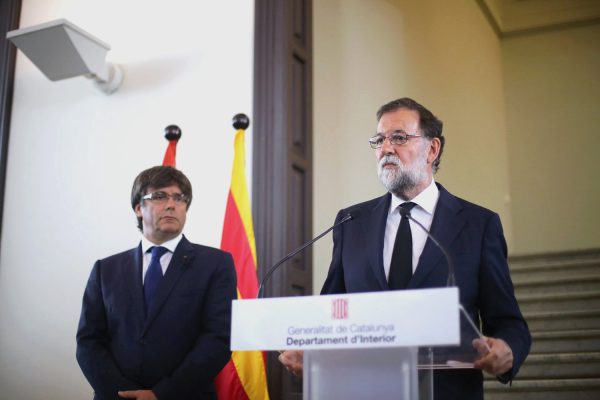
Spain’s latest attempt to prevent the Catalans from voting on independence next week risks making the situation in the region more dangerous.
Prosecutors have ordered the 17,000-strong Mossos d’Esquadra, the Catalan police force, to report directly to the Interior Ministry in Madrid as opposed to Catalan authorities in Barcelona.
Spanish officials had accused the Mossos (troopers) of not doing enough to disrupt preparations for the October 1 vote.
Spain claims it is protecting public safety, but its power grab could have the opposite effect.
Keeping the peace
Since Spain’s Constitutional Court suspended the Catalan referendum law two weeks ago, it have been the Catalan and Catalan-speaking officers of the Mossos who have kept the peace.
Unlike the Guardia Civil (gendarmerie), who have raided printing presses, Internet companies and government offices to seize ballot papers, shut down referendum websites and arrest civil servants, the Mossos are seen as “one of us” here.
When protesters blocked the entrance to the Catalan Finance Ministry earlier this week, it were the Mossos who convinced the crowd to disperse after midnight to allow the Guardia to exit the building.
Suspending the troopers’ autonomy and putting them under Spanish command dilutes their trustworthiness in the eyes of separatist hardliners. That could make it harder for them to keep a lid on passions at demonstrations between now and October 1.
